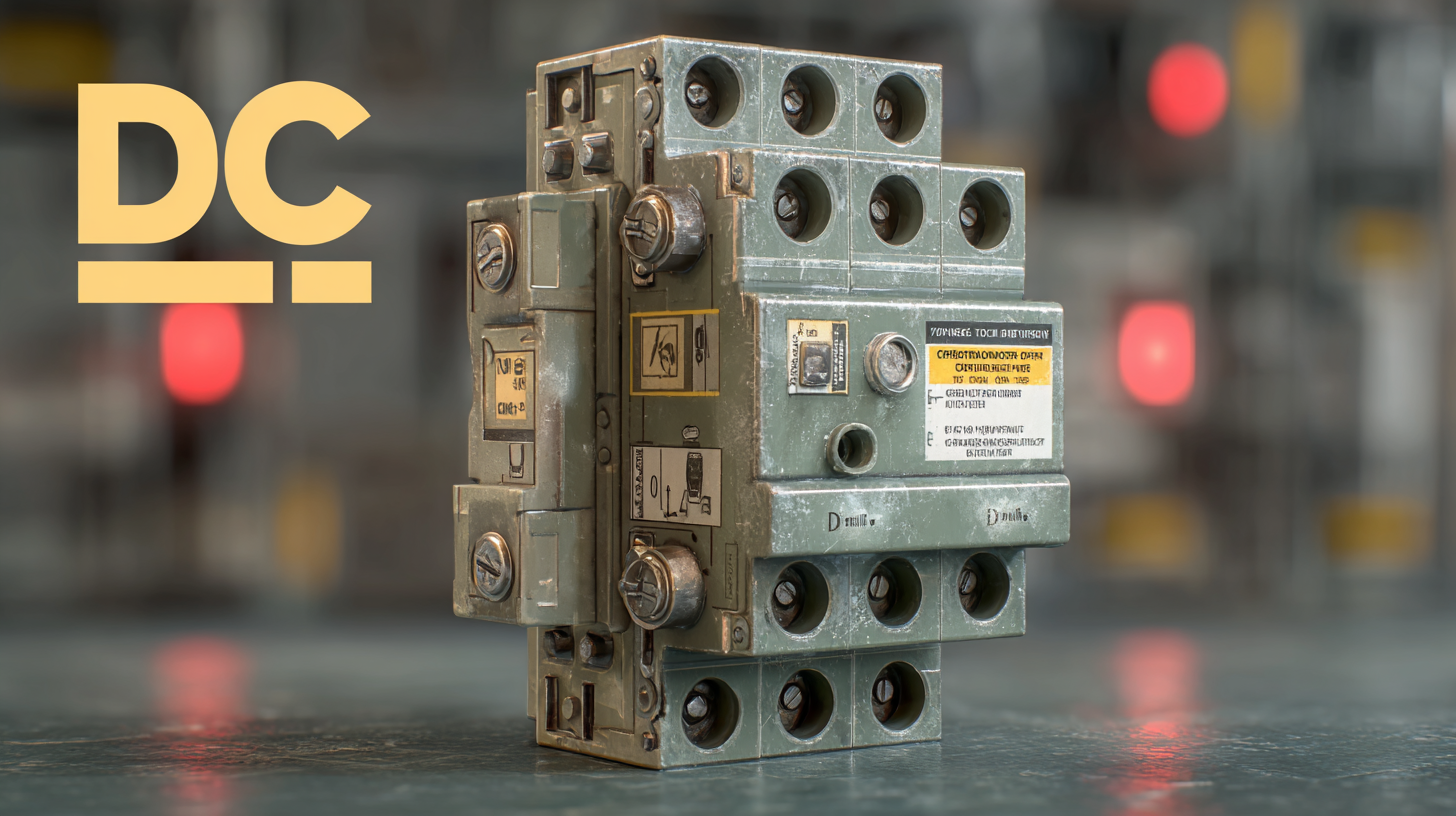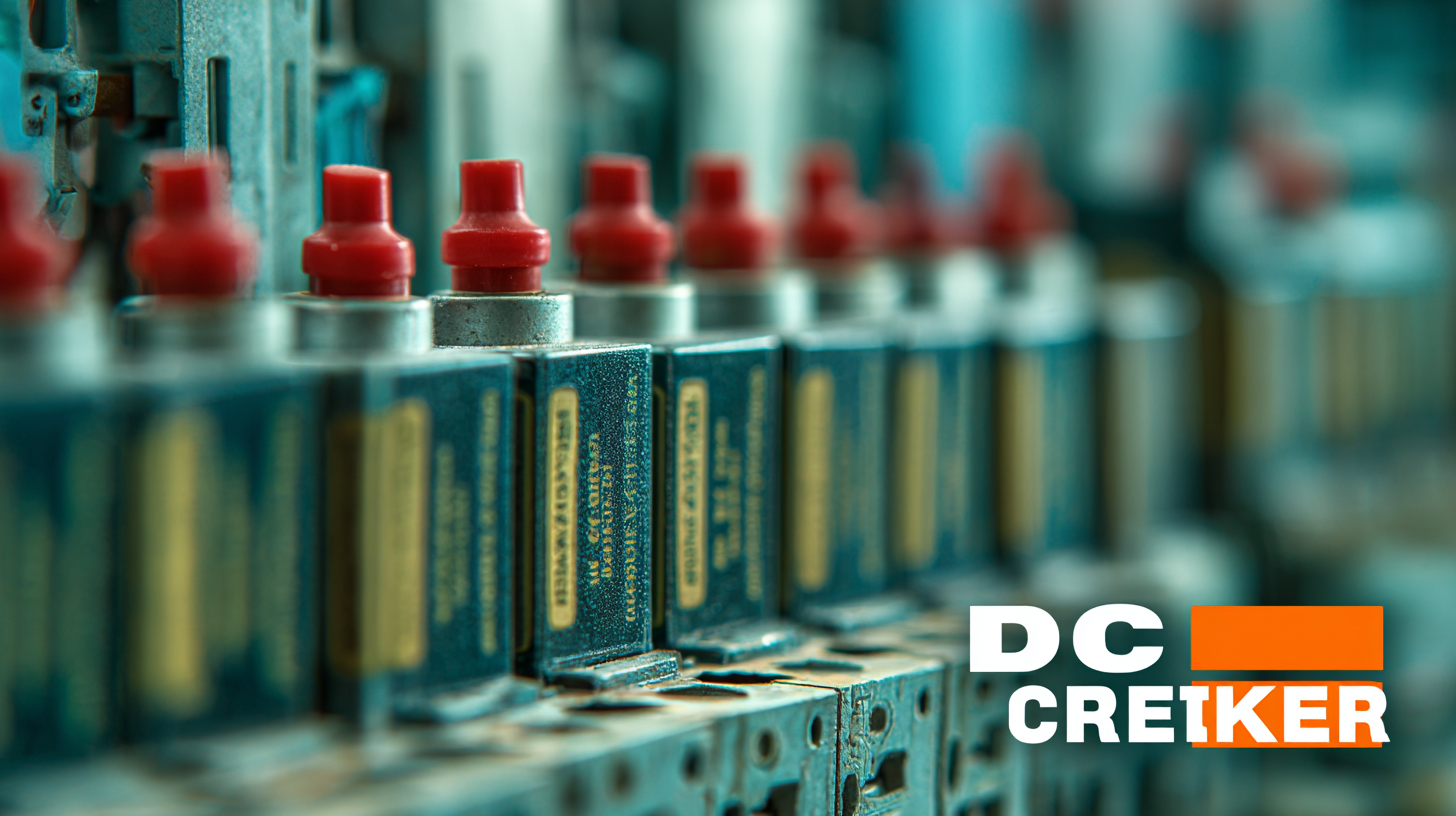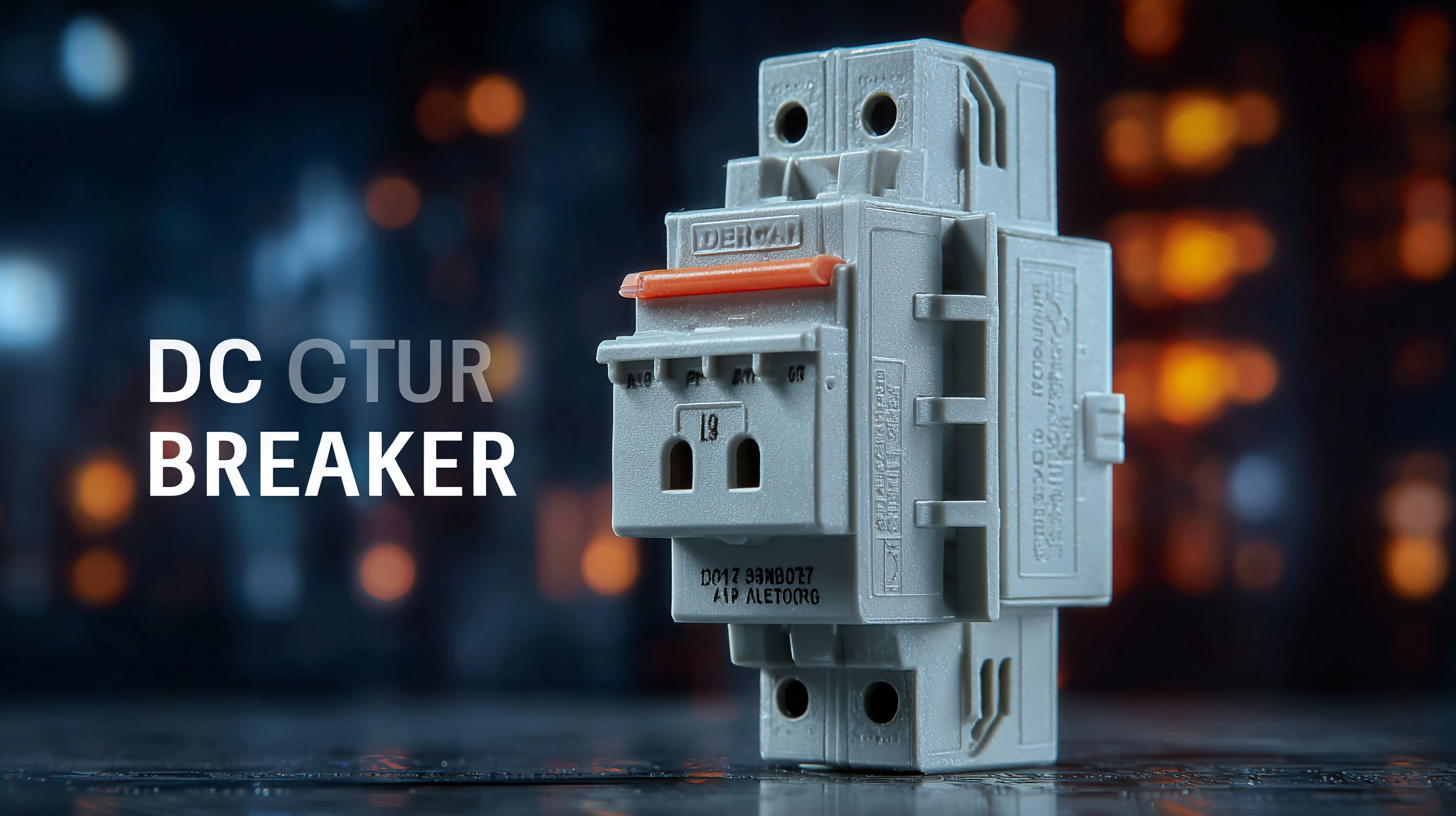
Maximizing Value with the Best DC Circuit Breaker through Service Support and Maintenance Strategies
In the rapidly evolving power distribution landscape, the role of DC Circuit Breakers has become increasingly critical, particularly as industries transition towards more sustainable energy solutions. According to a recent report by MarketsandMarkets, the global DC Circuit Breaker market is projected to grow from $1.3 billion in 2020 to $2.7 billion by 2025, reflecting a robust compound annual growth rate (CAGR) of 15.6%. This growth is driven by the rising demand for renewable energy sources and the integration of smart grid technologies, which require reliable and efficient circuit protection solutions.

As companies invest in advanced service support and maintenance strategies, the focus shifts towards maximizing the operational value of DC Circuit Breakers. By leveraging quality manufacturing, particularly from trusted Chinese manufacturers known for delivering consistent performance, businesses can enhance reliability and extend the lifecycle of their electrical systems, thereby ensuring sustained efficiency and safety in their operations.
Maximizing Performance: Understanding the Importance of DC Circuit Breaker Maintenance
Understanding the importance of DC circuit breaker maintenance is crucial for maximizing performance and ensuring the longevity of electrical systems.
According to a report by the International Electrotechnical Commission (IEC), regular maintenance can improve the reliability of circuit breakers by up to
30%, which significantly reduces the risk of system failures and downtime.
Additionally, preventive maintenance practices, such as thermal imaging and contact resistance testing,
can identify potential issues before they escalate into costly repairs.
Furthermore, the National Fire Protection Association (NFPA) states that electrical failures are one of the leading causes of industrial fires.
Implementing robust maintenance strategies for DC circuit breakers can mitigate these risks by ensuring that all components are functioning optimally.
Data from the Institute of Electrical and Electronics Engineers (IEEE) suggests that organizations that invest in routine maintenance can expect an average
return on investment of 20% due to reduced operational disruptions and enhanced energy efficiency.
Prioritizing maintenance not only enhances performance but also contributes to a safer working environment, reinforcing the critical role of DC circuit breakers in modern electrical systems.
Key Performance Indicators for Evaluating Circuit Breaker Efficiency in Your Facility
Evaluating the efficiency of DC circuit breakers is crucial for ensuring reliable power distribution in your facility. Key Performance Indicators (KPIs) such as operational reliability, response time, and maintenance frequency are essential metrics to assess. By monitoring these KPIs, facilities can identify performance trends and potential issues before they escalate into costly failures. For instance, a high operational reliability percentage indicates that the circuit breakers are functioning effectively, minimizing downtime and maximizing productivity.
Additionally, tracking the response time of circuit breakers during fault conditions is critical for safety and efficiency. A rapid response time can reduce the risk of damage to connected equipment and enhance overall system stability. Maintenance frequency also plays a significant role; a well-maintained circuit breaker will have a longer lifespan and operate more efficiently. By implementing a proactive maintenance strategy that incorporates these KPIs, facilities can not only improve the longevity of their DC circuit breakers but also optimize their energy management and reduce operational costs.
Maximizing Value with the Best DC Circuit Breaker through Service Support and Maintenance Strategies - Key Performance Indicators for Evaluating Circuit Breaker Efficiency in Your Facility
| KPI | Description | Measurement Unit | Target Value | Current Value | Status |
|---|---|---|---|---|---|
| Mean Time Between Failure (MTBF) | Average time between failures of the circuit breaker | Hours | 1500 | 1200 | Below Target |
| Mean Time To Repair (MTTR) | Average time taken to repair a failed circuit breaker | Hours | 2 | 1.5 | On Target |
| Overall Equipment Effectiveness (OEE) | Percentage of manufacturing time that is truly productive | Percentage | 85% | 80% | Slightly Below Target |
| Circuit Breaker Life Cycle Status | Current operational status of the circuit breaker | Stage | Operational | Near End of Life | Critical |
| Maintenance Compliance Rate | Percentage of scheduled maintenance performed on time | Percentage | 95% | 90% | Below Target |
Innovative Service Support Strategies to Prolong the Lifespan of DC Circuit Breakers
When it comes to maximizing the lifespan and efficiency of DC circuit breakers, innovative service support strategies play a crucial role. Regular maintenance is essential; it not only ensures compliance with safety standards but also helps in identifying potential issues before they escalate. Scheduled inspections and testing can keep the breakers functioning optimally, reducing the risk of unexpected failures.

Tips: Always maintain a detailed log of each maintenance activity. This will not only help track the performance of your DC circuit breakers but also aid in identifying recurring issues. Additionally, consider utilizing digital tools for monitoring performance metrics to facilitate proactive maintenance.
Another strategic approach is to invest in training for personnel handling the equipment. A well-informed team can recognize early warning signs of circuit breaker fatigue, enabling timely interventions. This proactive stance on education can significantly reduce downtime and repair costs.
Tips: Organize regular training sessions and workshops that cover the latest trends and maintenance practices in DC circuit breaker technology. This ensures that your team stays updated and equipped to tackle potential challenges effectively.
Cost-Benefit Analysis: Investing in Quality Circuit Breakers vs. Frequent Repairs
Investing in high-quality DC circuit breakers can significantly outweigh the costs associated with frequent repairs and system downtimes. According to a report by the Electric Power Research Institute, suboptimal circuit breaker performance can lead to a staggering 30% increase in maintenance costs over time. In contrast, investing in premium circuit breakers, which might initially seem expensive, can lead to enhanced reliability and reduced operational disruptions. This long-term savings often surpass the upfront investment, making a compelling case for prioritizing quality.
 Furthermore, a study by the National Electrical Manufacturers Association (NEMA) highlighted that quality circuit breakers can extend equipment lifespan by 25-50%. This longevity not only mitigates repair costs but also diminishes the frequency of replacements, thereby enhancing overall operational efficiency. Companies that focus on implementing robust service support and maintenance strategies for their circuit breakers can achieve greater reliability and performance, ultimately leading to a stronger bottom line.
Furthermore, a study by the National Electrical Manufacturers Association (NEMA) highlighted that quality circuit breakers can extend equipment lifespan by 25-50%. This longevity not only mitigates repair costs but also diminishes the frequency of replacements, thereby enhancing overall operational efficiency. Companies that focus on implementing robust service support and maintenance strategies for their circuit breakers can achieve greater reliability and performance, ultimately leading to a stronger bottom line.
Adopting a proactive approach to circuit breaker management is essential for maximizing value and minimizing long-term costs.
Data-Driven Maintenance: Utilizing AI and IoT for Predictive Circuit Breaker Servicing
In today’s rapidly evolving energy landscape, harnessing the power of artificial intelligence (AI) and the Internet of Things (IoT) for predictive maintenance of circuit breakers can significantly enhance reliability and efficiency. Advances in explainable AI (XAI) for energy systems maintenance provide invaluable insights into operational data, enabling predictive servicing that minimizes downtime and maximizes performance. According to recent surveys, integrating XAI with IoT can overcome challenges in maintenance processes, ensuring that circuit breakers operate optimally within distribution networks.
To successfully implement AI-driven maintenance strategies, it is vital to establish a robust condition monitoring system. Data shows that predictive maintenance approaches can reduce maintenance costs by up to 30% while improving equipment lifespan. Leveraging machine learning algorithms and real-time sensor data can facilitate timely interventions before issues escalate.
**Tip:** Regularly update the algorithms used in your predictive maintenance system to incorporate new data and improve accuracy. Furthermore, consider developing a feedback loop with field technicians to refine AI models based on real-world insights. This integration will not only enhance decision-making but also ensure that your circuit breakers sustain high operational standards.
Maximizing Value with the Best DC Circuit Breaker through Service Support and Maintenance Strategies
This bar chart illustrates the cost impact of various maintenance strategies for DC circuit breakers, highlighting the potential savings associated with predictive maintenance as opposed to other methods.
